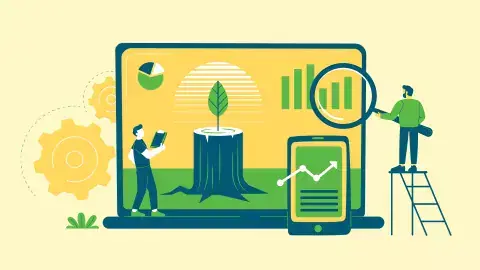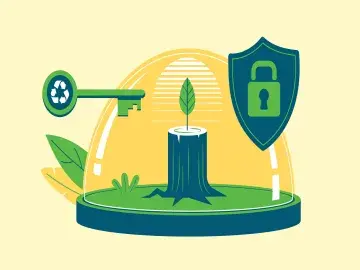Faith and Environmental Security
It is increasingly recognised that faith leaders and faith-based organizations (FBOs) are essential contributors towards attaining the Sustainable Development Goals (SDGs) and addressing environmental and climatic crises. Acknowledging this, the United Nations Environment Programme (UNEP) launched the Faith for Earth Initiative to strategically engage with FBOs, mobilise greater faith-inspired environmental action, scale-up faith actors’ capacities and catalyse greater synergies between them and other stakeholders. This short, self-paced, e-learning course, focusing on environmental security, forms part of this commitment.
Environmental security addresses the question of how environmental issues (climate change, environmental degradation and natural disasters) interact with and impact on human security concerns, conflict and peace. It examines threats posed by environmental degradation and trends to individuals, communities and nations. Equally, it explores how conflicts can result in environmental degradation as the naure world becomes caught up in human conflicts, also becoming a victim in the process. Fully addressing such issues requires the engagement of all sectors of society, and this course focuses on the role of faith actors, drawing on the particular qualities and comparative advantages they have.
KAICIID launched the FAITH4SDGS Project. More information and material can be found here: https://www.kaiciid.org/content/sustainable-development-goals-sdgs
This course is designed for religious leaders, faith-based organizations, civil society, non-governmental organizations, UN agencies, other multilateral institutions, government officials, policy and decision-makers and individuals interested in this subject. Whilst the focus is on faith actors, faith perspectives and faith-led action, this course seeks to contribute to building synergies amongst different stakeholders, highlighting the value of engaging with faith actors in addressing this challenge.
The goals of this course are to:
- Increase awareness amongst participants of major environmental security challenges and understand the role faith actors can play.
- Demonstrate to non-faith participants the value of working with faith actors on these issues.
- Help contribute to the attainment of SDG 16 – Peace, Justice and Strong Institutions.
At the end of this course, participants will:
- Understand environmental security, other related concepts and have a better understanding of the broad issue.
- Recognise the complex relationship between human security and the environment and how this relationship can play out.
- Have knowledge of different faith perspectives on peace and conflict as they relate to environmental security.
- Have seen examples of faith-led initiatives in this field, where inspiration can be drawn.
- Have guidelines, resources and strategies to help faith actors more effectively address environmental security concerns and effects.
Since its inception in 1972, the United Nations Environment Programme (UNEP) has been the global authority that sets the environmental agenda, promotes the coherent implementation of the environmental dimension of sustainable development within the United Nations system and serves as an authoritative advocate for the global environment. UNEP’s mission is to provide leadership and encourage partnerships in caring for the environment by inspiring, informing, and enabling nations and peoples to improve their quality of life without compromising that of future generations. UNEP works closely with its 193 Member States and representatives from civil society, businesses, and other major groups and stakeholders to address environmental challenges through the UN Environment Assembly, the world’s highest-level decision-making body on the environment.
This interactive digital course is specifically designed for busy professionals who do not have time to take the longer, moderated eight-module course on ‘Faith, Environment and Climate Change’. They can now select the relevant thematic topics and modules and learn on the go. Administered through a Massive Open Online Course (MOOC) platform, this short course takes around two hours to complete and can be taken anywhere, anytime, at a pace that suits and from a phone or a computer.
Modern and updated browsers.
A Certificate of Completion will be issued to participants who achieve a minimum total score of 70%.
E-Learning in IRD designed for the general public


